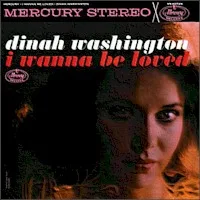Time: 60:18
Size: 138.0 MB
Styles: Piano jazz, Easy Listening
Year: 2014
Art: Front
[4:26] 1. Secret Love
[6:06] 2. Ghost Of A Chance
[4:33] 3. Star Eyes
[5:38] 4. Round Midnight
[4:51] 5. East Of The Sun
[4:22] 6. Always
[5:59] 7. Blue And Sentimental
[6:04] 8. I Let A Song Go Out Of My Heart
[4:19] 9. But Beautiful
[4:03] 10. Cheek To Cheek
[5:14] 11. But Not For Me
[4:42] 12. Avalon
Bass – Jay Leonhart; Drums – Mark Taylor; Piano – Eddie Higgins. Recorded at Clinton Studio in New York on October 14-17, 2006.
Born and raised in New England, Eddie (Haydn) Higgins started his professional career in Chicago, while studying at the Northwestern University Music School. For twenty years Eddie worked at some of Chicago's best known jazz clubs, including the Brass Rail, Preview Lounge, Blue Note, Cloister Inn and Jazz Ltd. His longest and most memorable job was at the London House, where he led the house trio for twelve years, playing opposite the biggest jazz stars of the 50's and 60's, including Stan Getz, Oscar Peterson, Dizzy Gillespie, Errol Garner, George Shearing, Cannonball Adderley, Bill Evans and many others.
During his stay in Chicago, Eddie recorded a number of albums under his auspices and many more as a sideman with a wide variety of musicians, ranging in style from Coleman Hawkins to Wayne Shorter, Don Goldie to Freddie Hubbard, Jack Teagarden to Al Grey. Eddie's versatility is well-known: he has backed singers, done studio work as both pianist and arranger and worked in every jazz medium from Dixieland to Modern Jazz. ~Bill Gallagher
Born and raised in New England, Eddie (Haydn) Higgins started his professional career in Chicago, while studying at the Northwestern University Music School. For twenty years Eddie worked at some of Chicago's best known jazz clubs, including the Brass Rail, Preview Lounge, Blue Note, Cloister Inn and Jazz Ltd. His longest and most memorable job was at the London House, where he led the house trio for twelve years, playing opposite the biggest jazz stars of the 50's and 60's, including Stan Getz, Oscar Peterson, Dizzy Gillespie, Errol Garner, George Shearing, Cannonball Adderley, Bill Evans and many others.
During his stay in Chicago, Eddie recorded a number of albums under his auspices and many more as a sideman with a wide variety of musicians, ranging in style from Coleman Hawkins to Wayne Shorter, Don Goldie to Freddie Hubbard, Jack Teagarden to Al Grey. Eddie's versatility is well-known: he has backed singers, done studio work as both pianist and arranger and worked in every jazz medium from Dixieland to Modern Jazz. ~Bill Gallagher
Secret Love




















